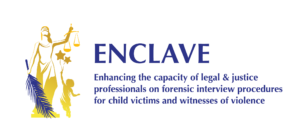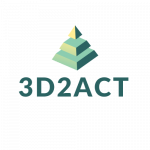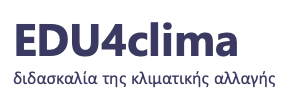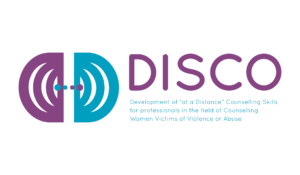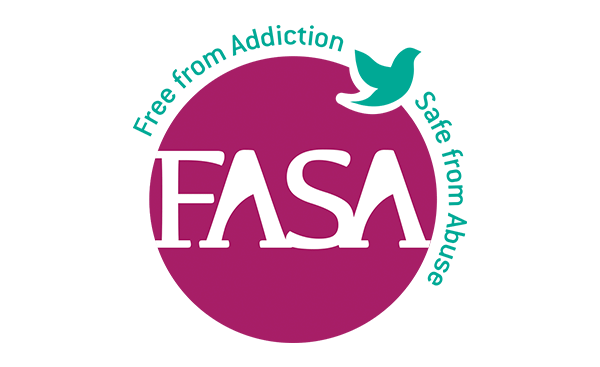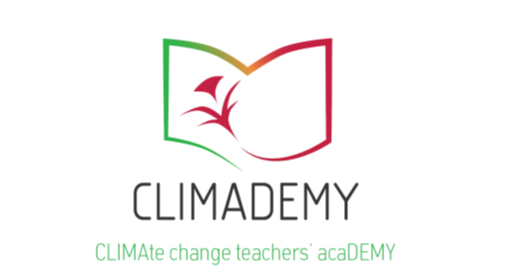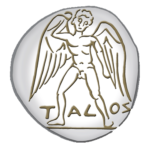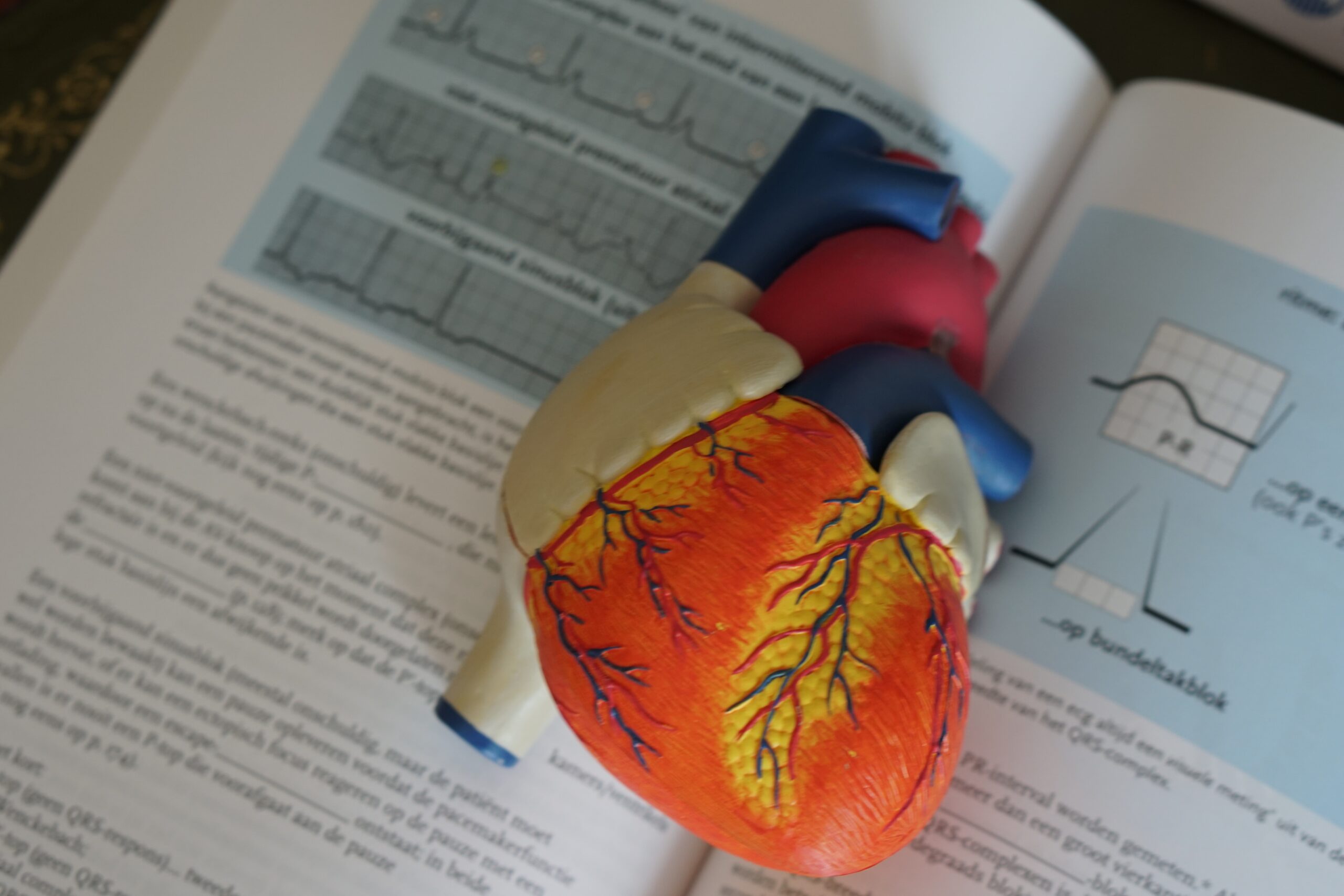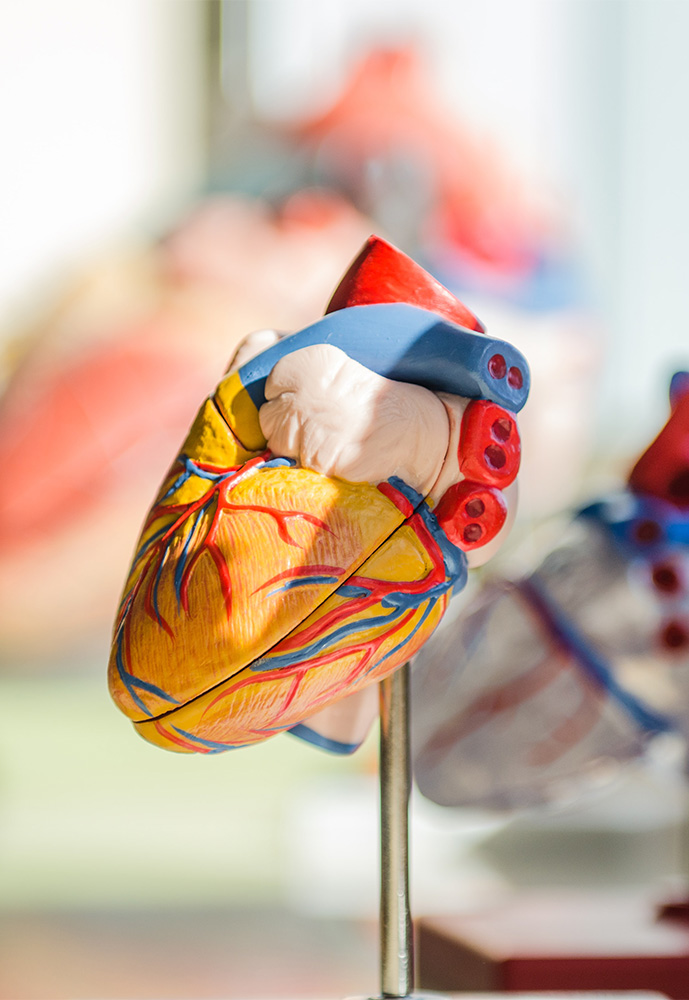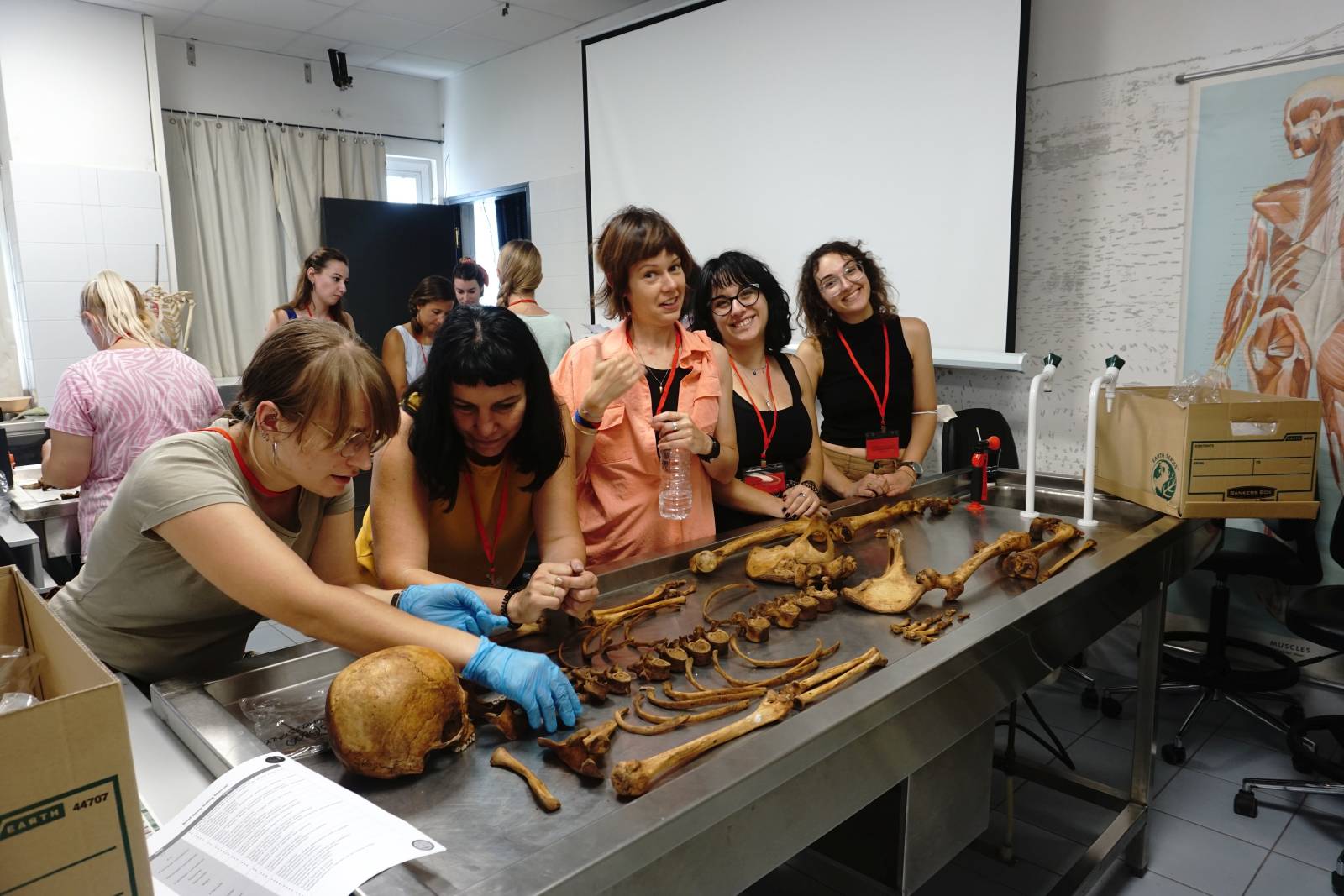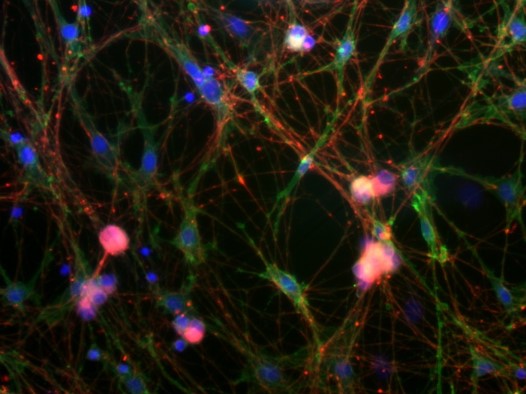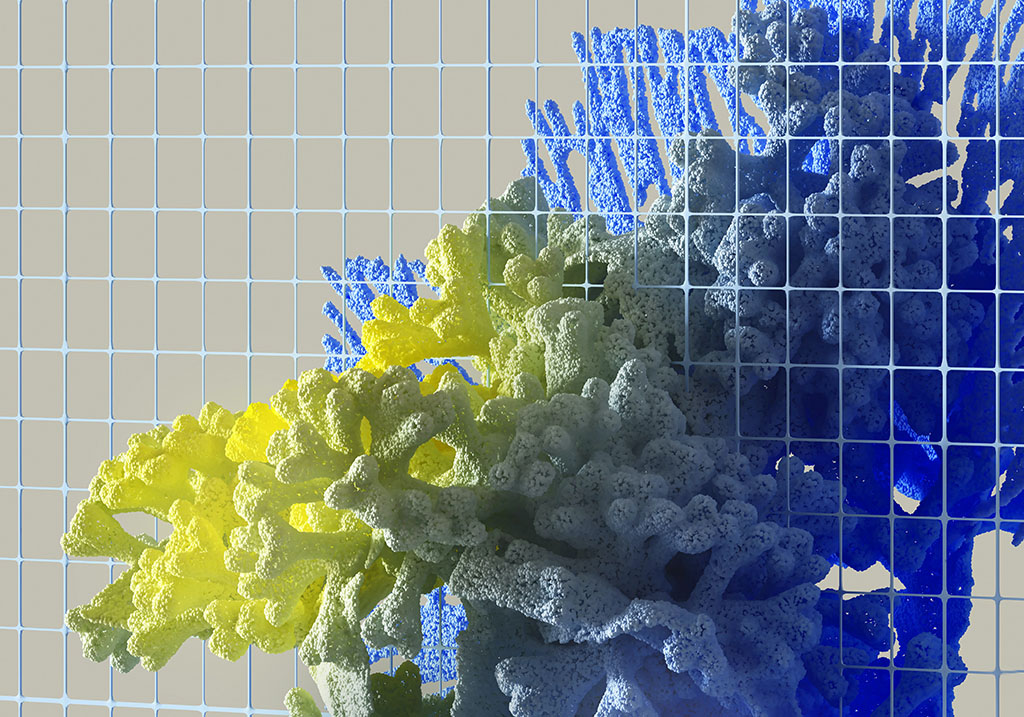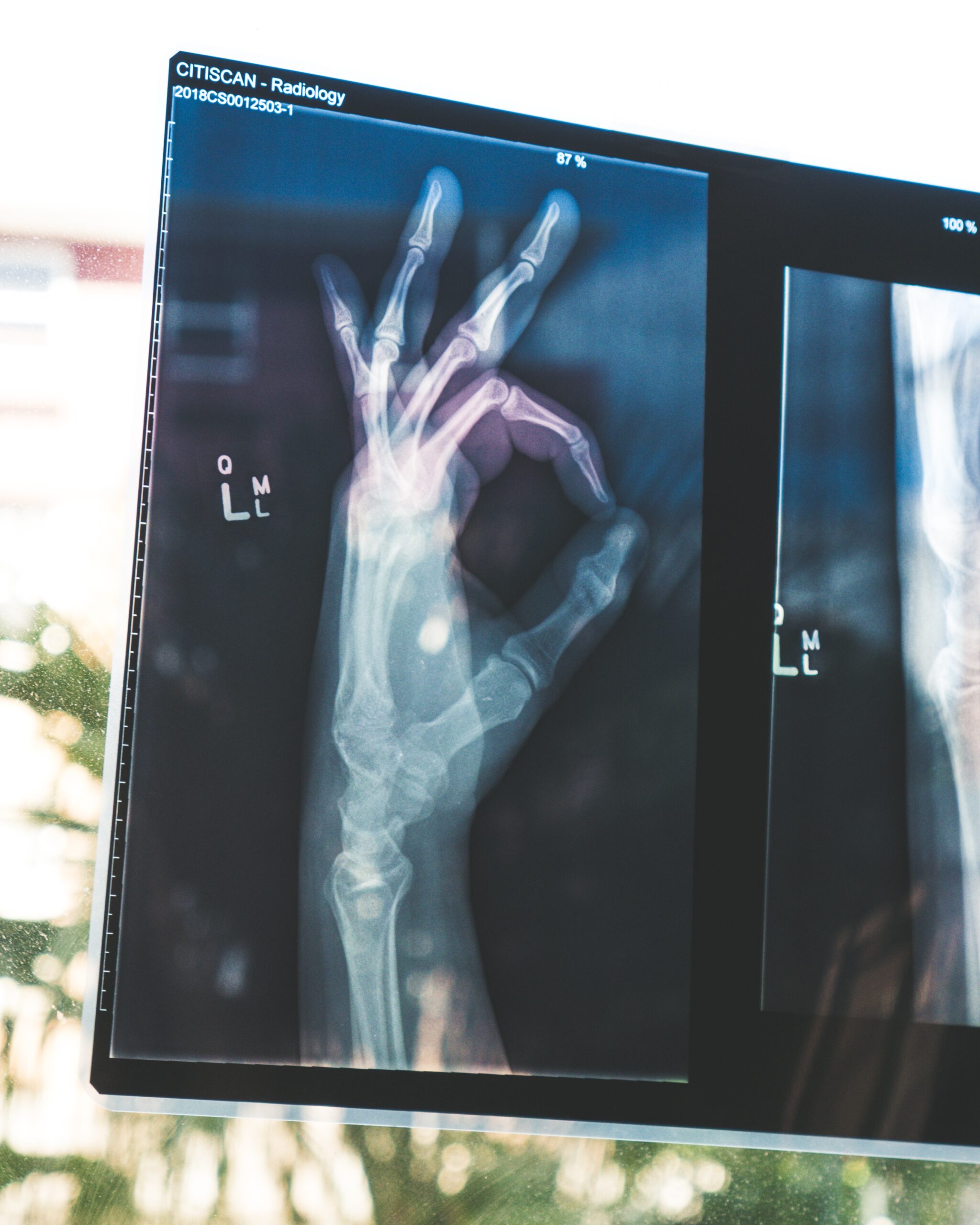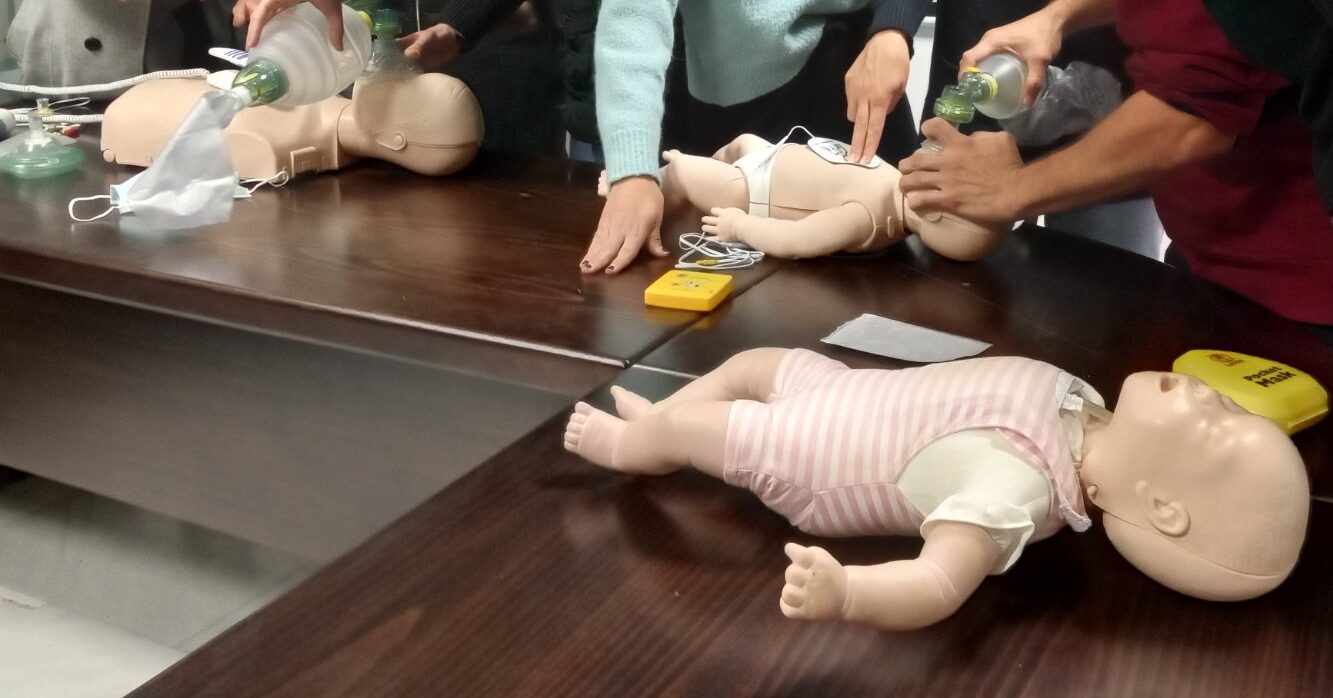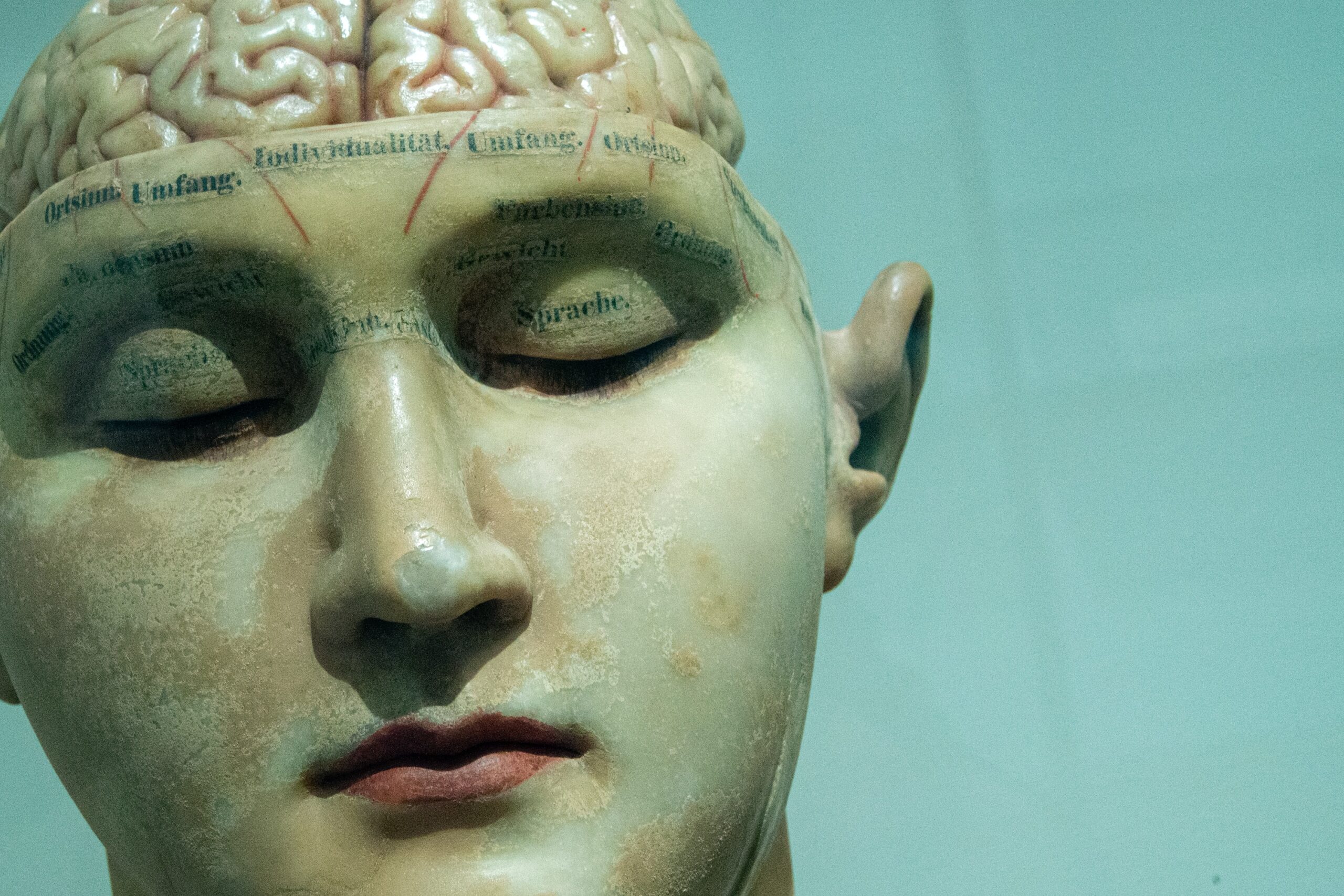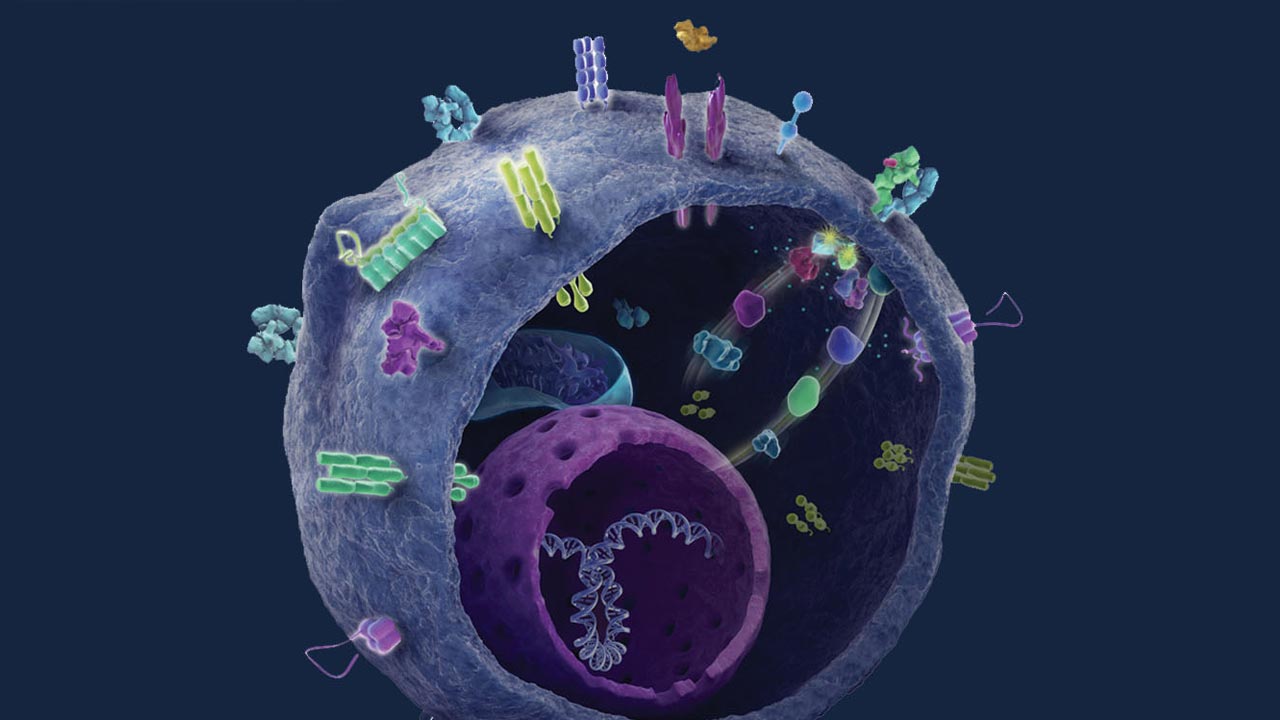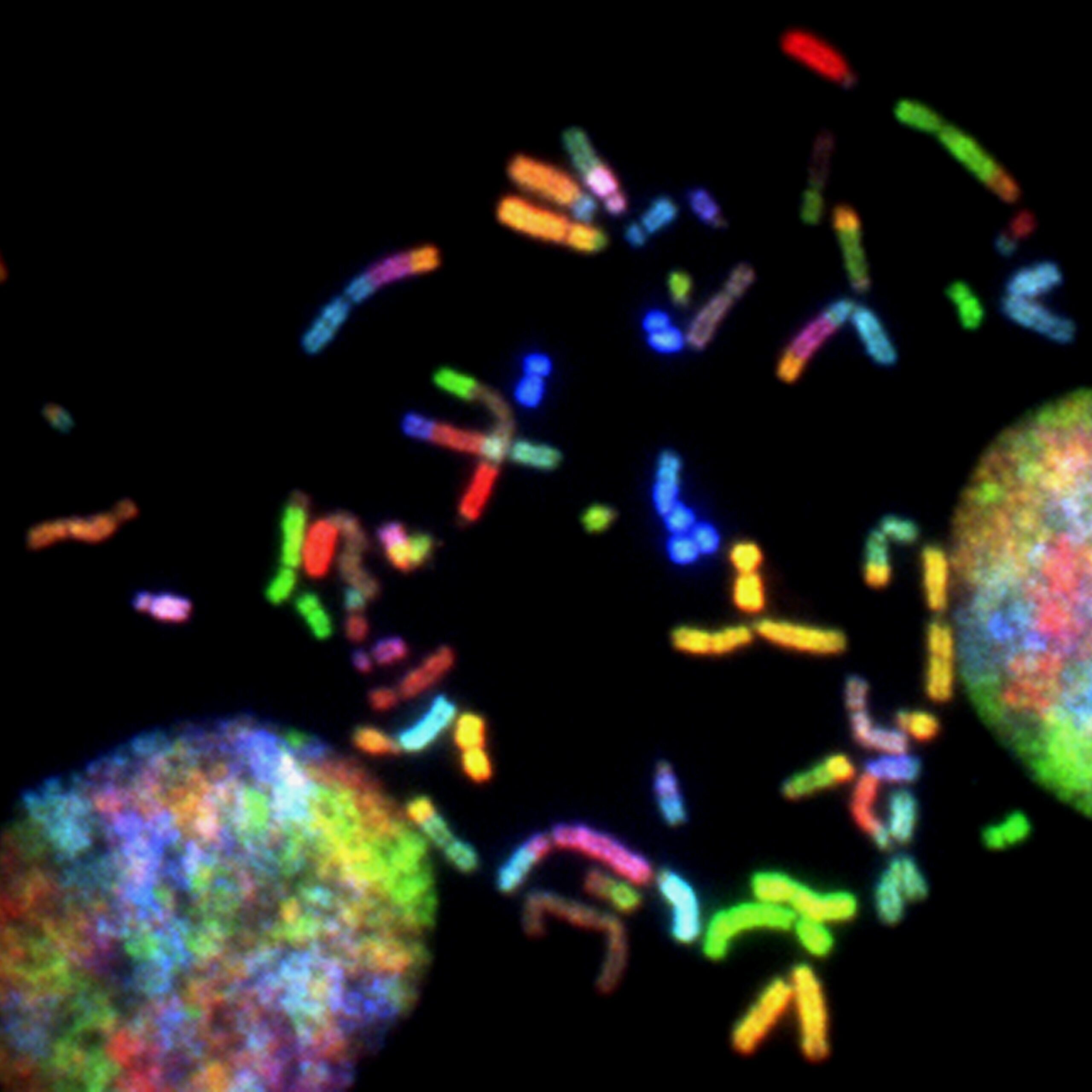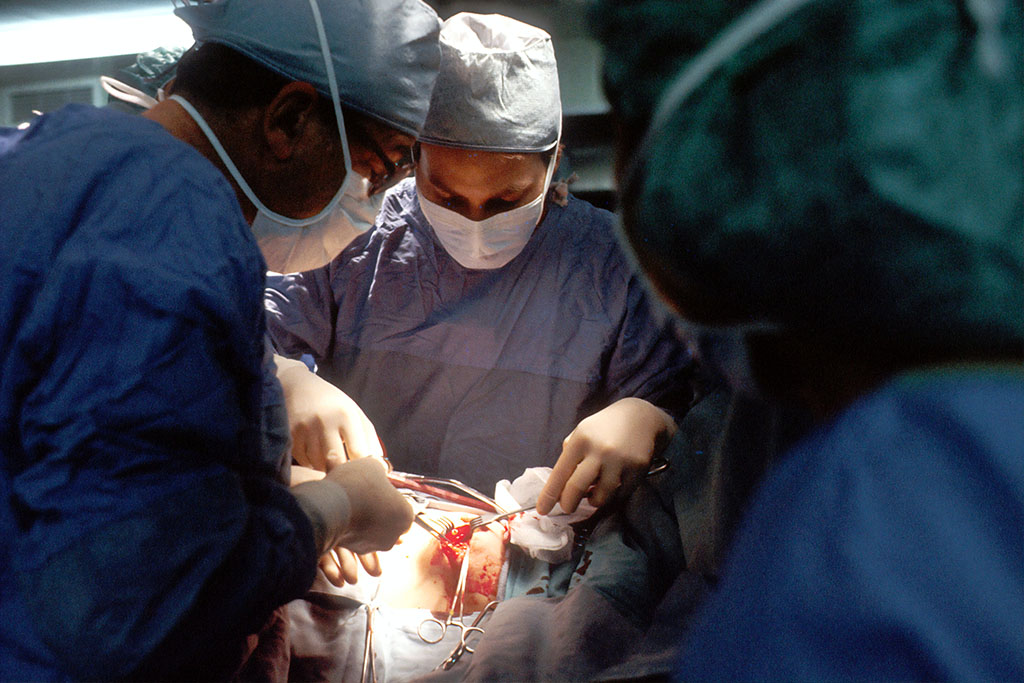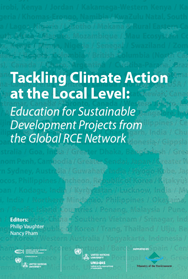
Regional Centres of Expertise on Education for Sustainable Development (RCEs): RCE-Crete
RCE Crete has been a member of the Global RCE Network on Education for Sustainable Development (ESD) since 2009. Among its activities, RCE-Crete in collaboration with partners in Egypt and Jordon has developed an MSc programme on Climate Change, Sustainable Agriculture, and Food Security (CCSAFS) This is showcased in the 2021 UNU-INS publication Tackling Climate Action at the Local Level: Education for Sustainable Development Projects from the Global RCE Network as an example of how global goals can be translated into local actions through education and training to respond to the climate crisis.
For more information on the ESD forums based at the University see RCE-Crete.
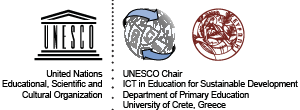
UNESCO Chair in ICTs in Education for Sustainable Development
The UNESCO Chair in ICTs in Education for Sustainable Development was established in 2008 at the University’s Department of Primary Education. Current programmes include: Refugee Teaching Certification Programme for Egyptian and Refugee Teachers Enabled by Blended Learning (RefTeCp) with HEIs in Egypt; ICT-enabled In-service Training of Teachers to address Education for Sustainability (ICTeEfS) with HEIs in Indonesia, Malaysia and Vietnam; and Professionalisation of Undergraduate Academic Teaching in Multiple Disciplines to Address SDGs (PUAT) with HEIs in Africa.

Natural History Museum of Crete
The University’s NHMC is a pioneering institute in study and management of the natural environment in Crete, Greece and the wider Eastern Mediterranean, with public education, lifelong learning and outreach on environmental issues as core activities.
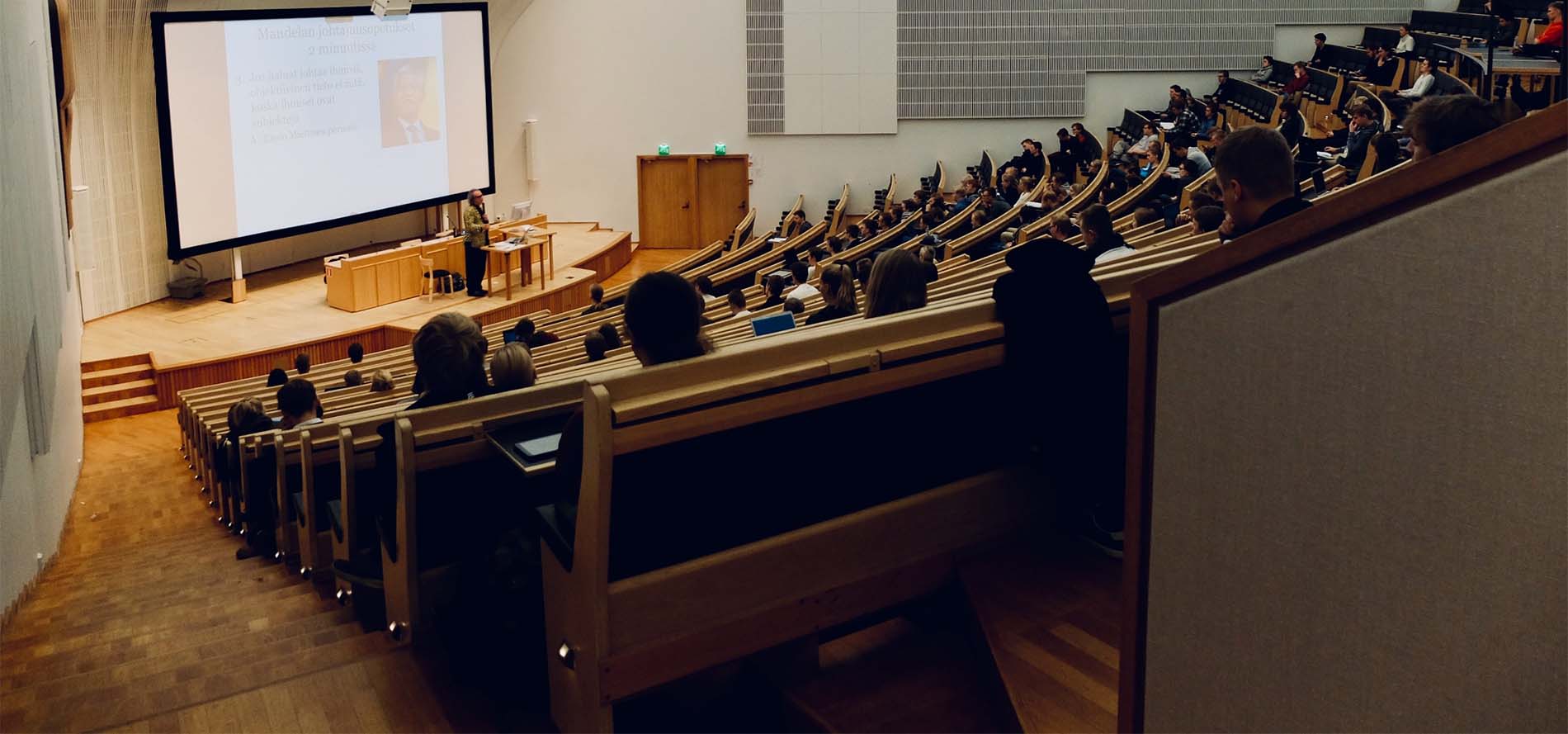
Centre of Training and Lifelong Learning (KEDIVIM)
Utilizing distance learning technologies, face-to-face teaching/learning, and blended course modules, the Centre oversees a wide range of professional training programmes and lifelong learning activities.

Centre of Teaching and Learning (CTL) TotT
The initial goal is the development of a culture of exchanging good teaching practices between teaching staff and Faculty members of the University of Crete.
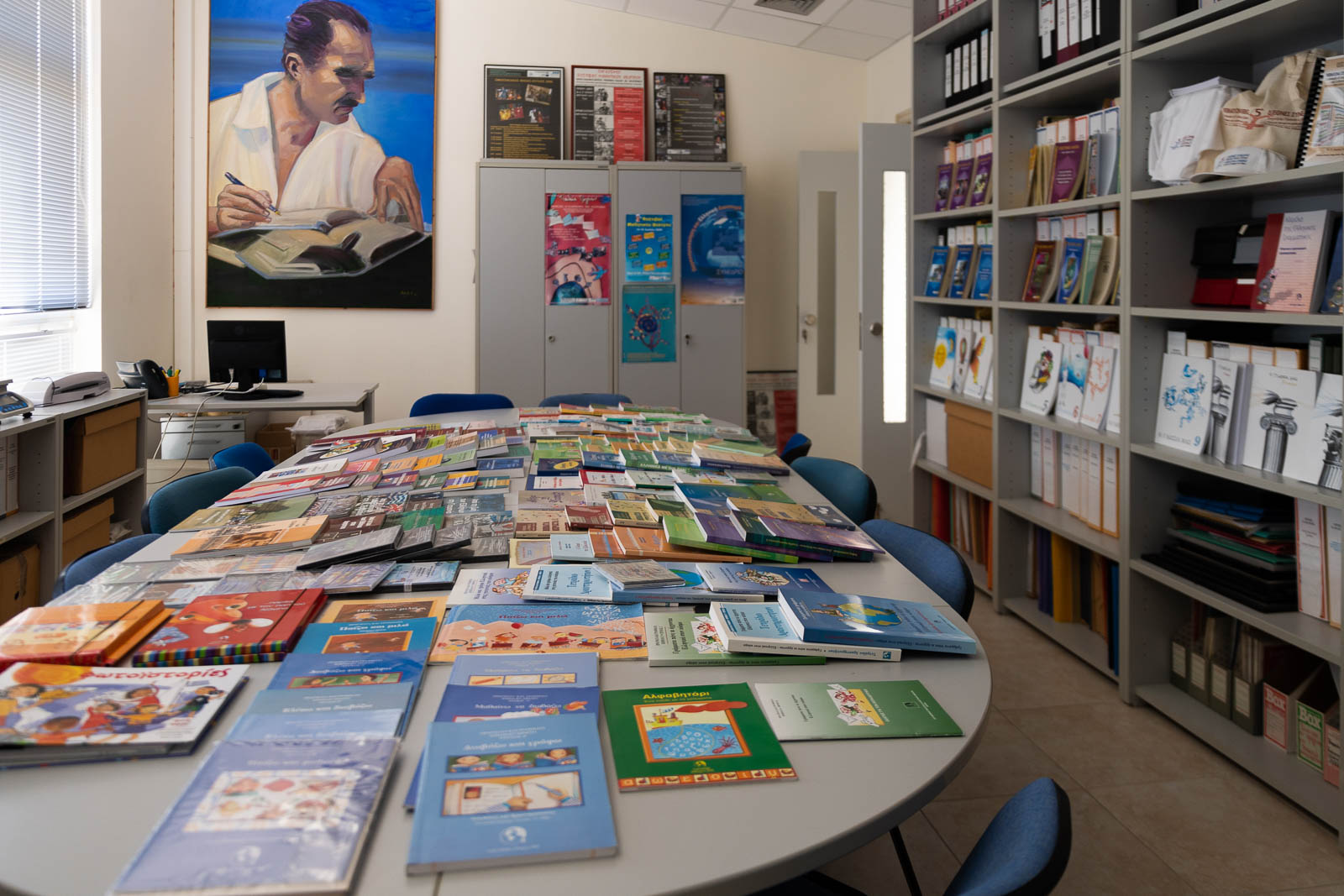
Intercultural and Migration Studies Centre
The Intercultural and Migration Studies Centre (E.DIA.M.ME) promotes intercultural and bilingual education, and provides pre- and in-service training for teaching Greek as a second/ foreign language.
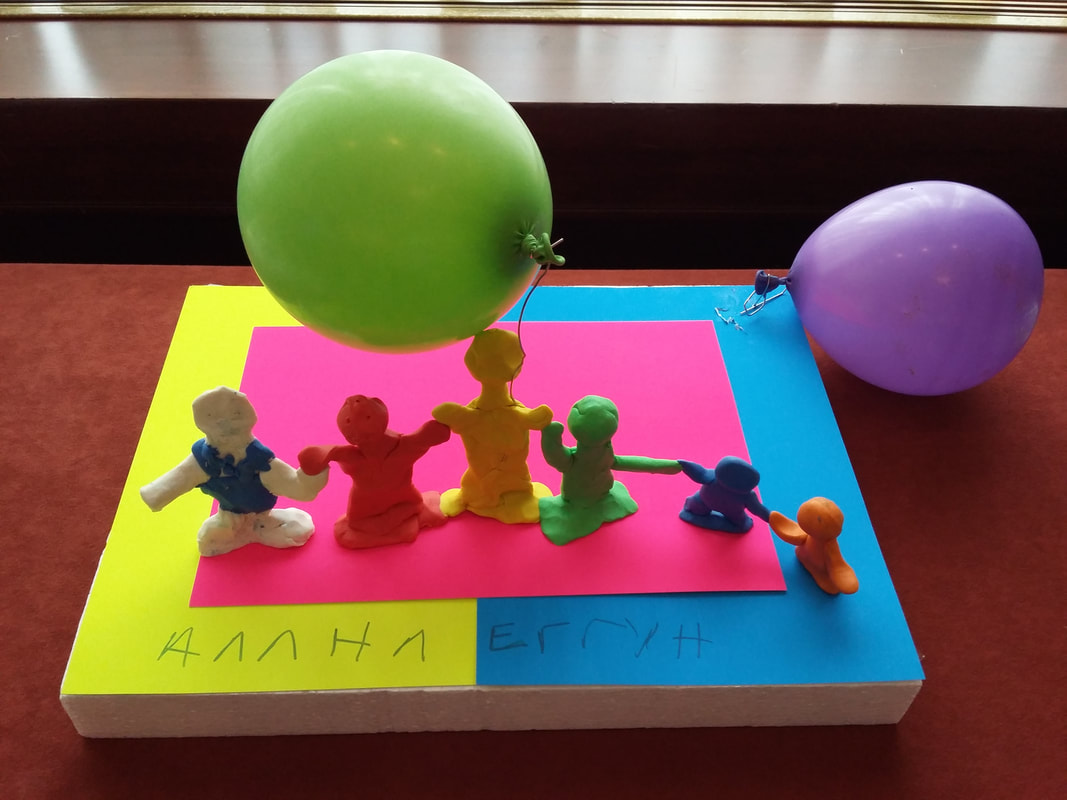
e-Learning Lab (EDIVEA)
The University’s e-Learning Lab (EDIVEA) promotes advanced technologies in lifelong and distance learning for the professional development of teachers, for connecting local communities, and for exchanges of best practices on pedagogical uses of ICT among educators and other entities.
The Centre for the Study and Research of the History of Education and the Teaching Profession (C.S.R.H.E.T.P.) of the Primary Education Pedagogical Department of the School of Education Sciences of the University of Crete and the Region of Crete was established for the service of and teaching needs in the field of research and study of the History of Education, the history of the teaching profession over time and for a more systematic and effective way of teaching history and culture in Greek schools today.
Teacher Training and HR Capacity Building
ENCLAVE
Enchancing the capacity of legal & justice professionals on forensic interview procedures for child victims & witnesses of violence.
3D2ACT
Fostering Industry 4.0 and 3D Technologies Through Social Entrepreneurship: An Innovative Programme for a Sustainable Future.
rhythm4inclusion
Promoting Social, Emotional, and Learning Skills of Students with and without Special Education Needs by Developing Teachers’ Capabilities in Music, Dance and Digital Competences.
TAST Strategy
Teaching Strategies: Combating skills mismatch through a transdisciplinary approach and skills transferability.
EDU4clima
Teaching about Climate Change.
IDENTITIES
Integrate Disciplines to Elaborate Novel Teaching approaches to InTerdisciplinarity and Innovate pre-service teacher Education for STEM challenges.
EMPKIDL
Empowering Kids with Interactive Digital Library.
PROW
Promoting Teachers Well-being through Positive Behaviour Support in Early Childhood Education.
CARE
Enhancing Early Childhood Education and Care in Palestine.
LEVEL-UP
Setting the ground for a multi-level approach on developing soft skills in Higher Education.
DIS.CO “Counselling at a Distance”
Development of “at a Distance” Counselling Skills for Professionals in the field of Counselling Women Victims of Violence or Abuse.
GatherED
Global Teacher Education.
Artificial Intelligence for Humanities and Social Sciences (TALOS-AI4SSH)
The objective of the Talos ERA Chair Project is to create a hub of excellence at UCRC-UoC (Rethymnon) combining data and knowledge-based.
Bachelor Programmes
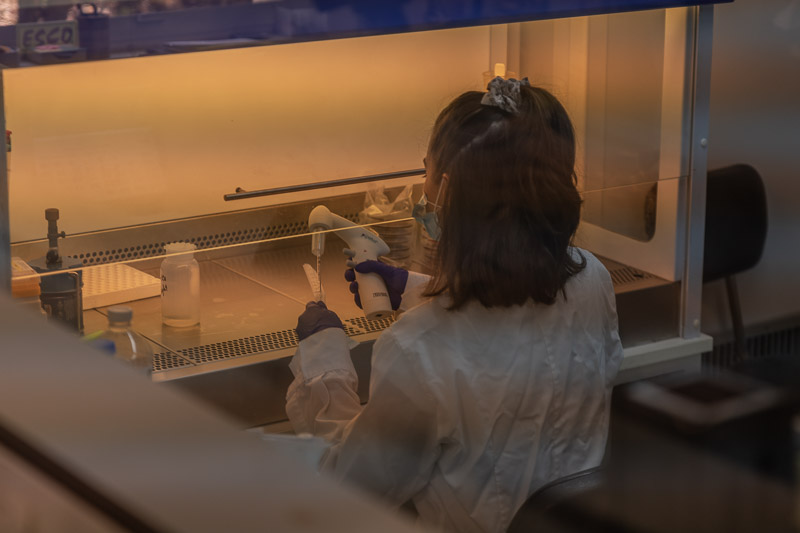
Bachelor of Medicine
The University’s six-year Bachelor of Medicine degree equips students with the knowledge, understanding and skills to begin careers in health care practice in communities and hospitals or in medical research centres. The language of instruction is Greek, but English options are available for student exchanges and for clinical clerkships at the University General Hospital of Heraklion.
![]()
![]()
![]()
![]()
![]()
![]()
International Program in Medicine
The goal of the Medical School is to provide high level medical studies, based on studying and understanding medical science and offering practical and clinical education.
The main objectives of the medical studies are:
- To build the appropriate foundation of knowledge, for the understanding of human disease
- To develop skills and competencies necessary for practicing Medicine
- To understand scientific and ethical basis of all medical procedures
- The perception of medical practice, as an obligation to the patient and to society
![]()
![]()
![]()
![]()
![]()
![]()
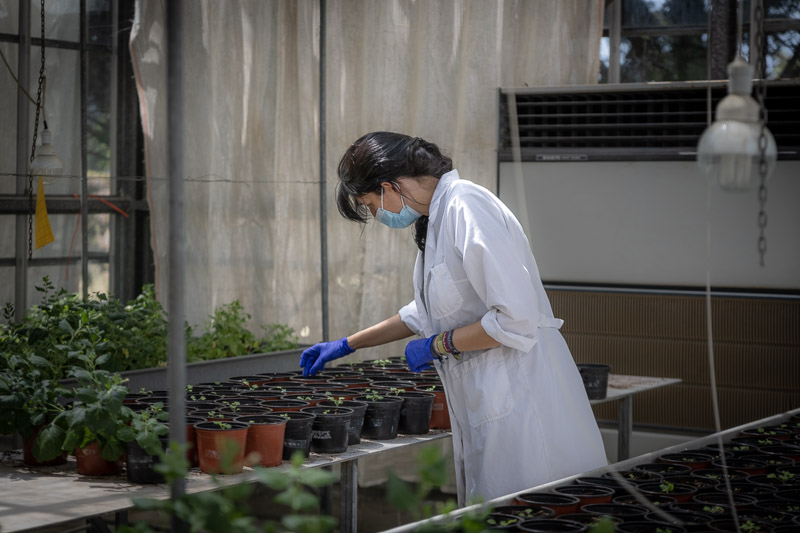
Biology: Environmental Biology and Biological Resources Management
Biology: Environmental Biology and Biological Resources Management is the scientific direction of a four-year BSc programme that covers theory and offers practical training in the challenges of conserving and managing marine and terrestrial environments and resources.
![]()
![]()
![]()
![]()
![]()
![]()
![]()
![]()

Bachelor of Psychology
The Department aims to provide the students with a comprehensive knowledge of the basic fields of psychology in terms of theoretical orientations, empirical research, and methodology. The program preparing the students for continuing their studies and obtaining relevant jobs.
![]()
![]()
![]()
![]()
![]()
![]()

Bachelor Program of Sociology
The aim of the academic programme is to equip students with theoretical knowledge on the subject matters of sociology and to teach them how to apply methodoligal tools and carry out empirical research. Special emphasis is given in develoloping independent and reflexive sociological thinking that will allow students to analyse social phenomena, and to reflect on the consequences of their actions on social reality.
![]()
![]()
![]()
![]()
![]()
![]()

Bachelor Program of Preschool Education
The objectives of the PEUP is to provide graduates with both theoretical, methodological and career-specific knowledge and skills to be able to successfully meet the modern working life’s demand for competent educators not only in kindergartens and day-care centers but in any environment where preschool learning activities take place.
![]()
![]()
![]()
![]()

Bachelor Program of Primary Education
The main aim of the department is to provide graduates with the appropriate equipment to successfully work in the field as competent teachers and educators with broad pedagogical knowledge and sensitivity towards contemporary educational issues that affect students’ well-being.
![]()
![]()
![]()
![]()
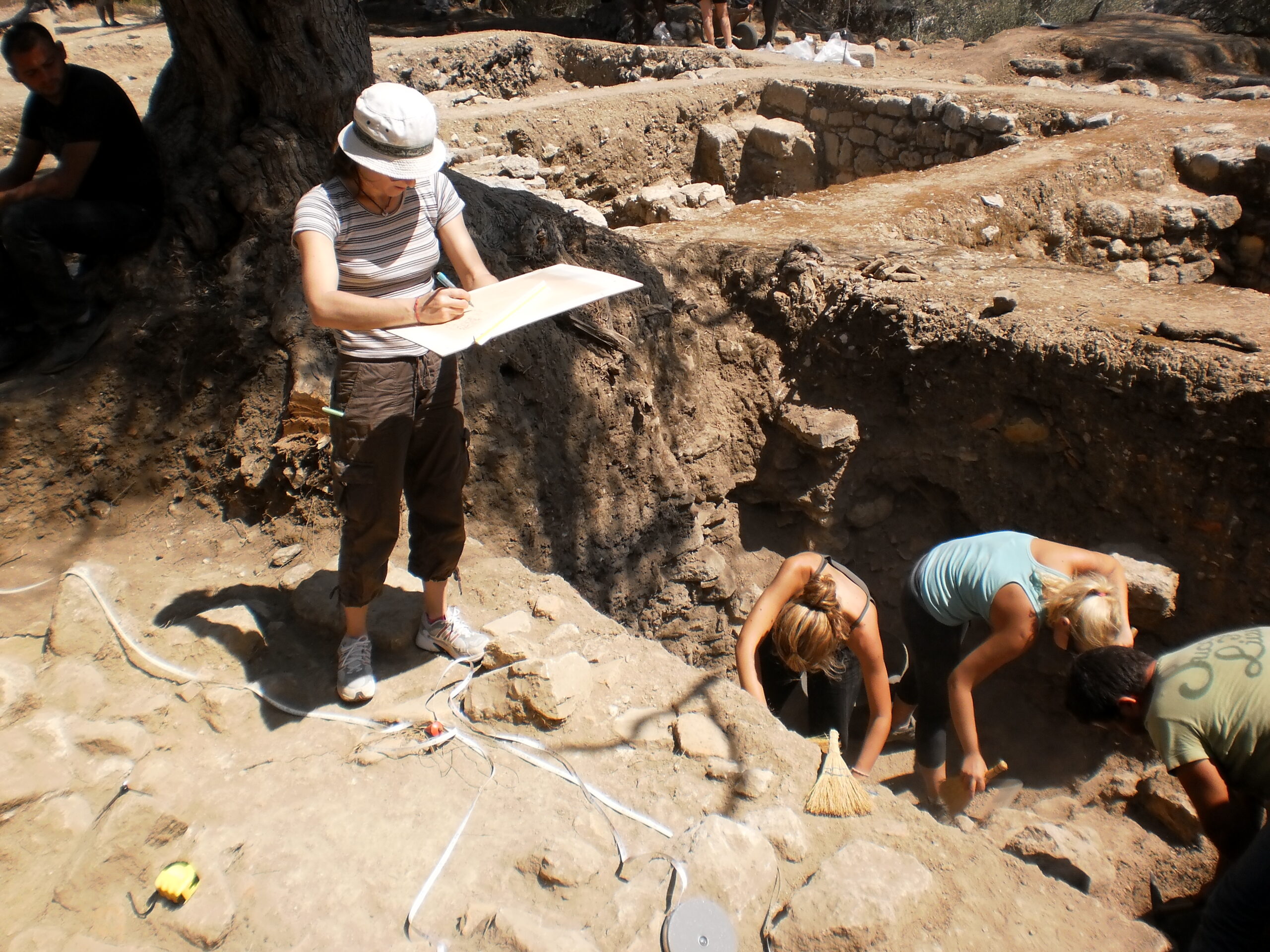
Bachelor of History and Archaeology
The Department aims to teach its main subjects (Ancient and Medieval History, Modern History, Archaeology and History of Art, and Oriental and African Studies) on the basis of a coherent concept, combining a thorough knowledge of primary sources with the capacity to employ a range of different methodological tools. Its main objective is to enable students not only to accumulate basic knowledge but also to develop their critical thought.
![]()
![]()
![]()

Bachelor of Political Science
The Department of Political Science at the University of Crete is a dynamic teaching and research institution offering courses and supervision in the major areas of contemporary political science.
The programme combines a systematic exploration of the various subfields within the discipline (political philosophy and political theory, public policy, comparative and European politics, political sociology, international relations) and the acquisition of personal and transferable skills (including the systematic training in foreign languages, IT skills, qualitative and quantitative methods).
![]()
![]()
![]()
![]()
![]()
![]()
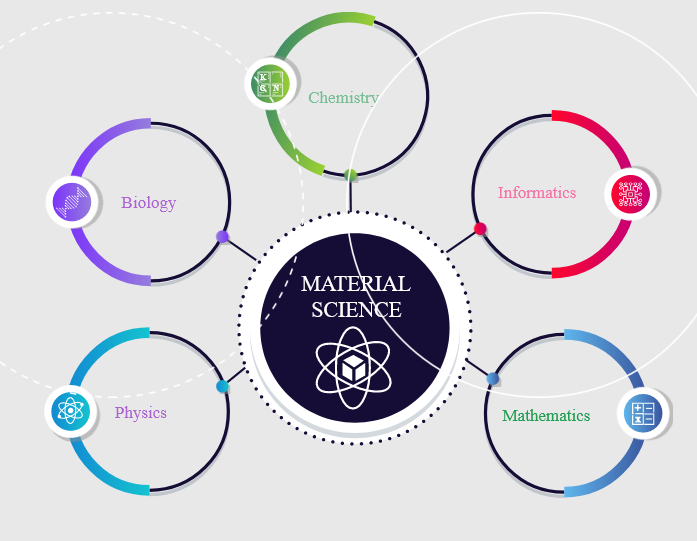
Bachelor of Materials Science
The goal of the undergraduate program is to provide high quality education in the interdisciplinary field of Materials Science and Technology, which is relatively new in Greece. The Department aims to provide a solid foundation in Physics, Chemistry, and Biology which is then applied to understanding, analysis, and innovation in Optoelectronic and Magnetic materials, Polymers, and Biomaterials.
![]()
![]()
![]()
![]()
![]()
![]()
![]()
![]()

Bachelor of Philosophy and Social Studies
The undergraduate study program aims at providing a general knowledge of the scientific fields that are investigated in the Department and special analytical skills with respect to the reflection on epistemic, ethical and social questions and problems.
![]()
![]()
![]()
![]()
![]()
Master Degrees

Vaccines and Prevention of Infectious Diseases
Vaccines and Prevention of Infectious Diseases is a 3-semester programme in Greek &/or English that provides basic theoretical education on vaccines as well as practical skills and strategies for disease prevention, crisis management and interaction with the community.

Aquaculture, Environment and Society
Erasmus Mundus Joint Master Degree in Aquaculture, Environment and Society Plus (EMJMD ACES\ACES+) Learn from a team of international experts, study at 4 European centres of excellence and play a vital role in addressing global food insecurity.

Clinical Interventions in Addictions
is a 2-year MSc programme in Greek &/or English focusing on drug abuse and its effective prevention and treatment. The programme is offered by the Department of Psychology in collaboration with the University’s School of Medicine and with OKANA, the Organisation Against Drugs.

Biomedical Engineering
Biomedical Engineering is a highly interdisciplinary field currently leading in the creation of technological prerequisites for modern precision/personalized medicine. The MSc degree programme is offered jointly by three UoC Departments and two of the FORTH Institutes.
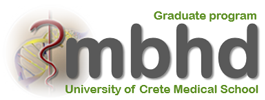
The Molecular Basis of Human Diseases
The Molecular Basis of Human Diseases is a 2-year MSc programme in English, offered by the Medical School. The objective of the programme is to promote translational research by bridging the gap between basic scientists and clinical doctors. The emphasis is on the molecular basis of human diseases, diagnostics and therapies.
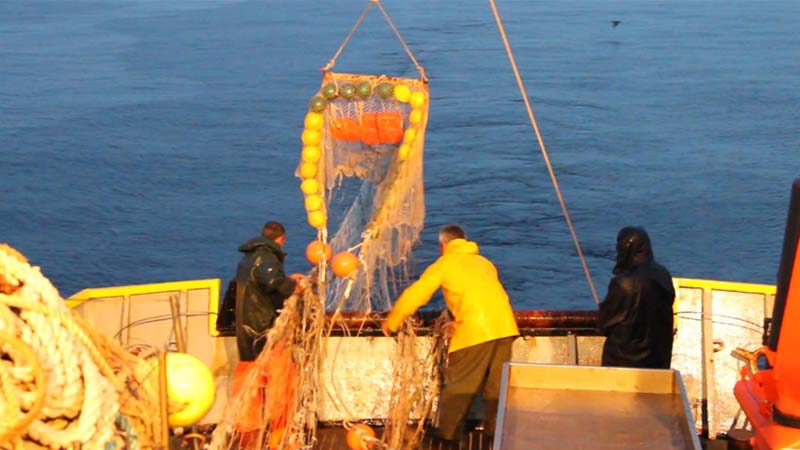
Environmental Biology
Environmental Biology is a 3-semester Joint Master degree offered by the Department of Biology with the Natural History Museum of Crete and the Hellenic Centre for Marine Research (HCMR) It provides state-of-the-art knowledge and skills in key areas of environmental protection, sustainable development of aquaculture, ecology and sustainability of fisheries, and conservation of biodiversity.
Community Work and Social Economy
Community Work and Social Economy is a 3-semester Joint Master programme offered by the UoC Department of Sociology with the Hellenic Mediterranean University. Based on the Social and Solidarity Economy (SSE) development paradigm, it aims to equip young professionals with the skills and knowledge to meet the multi-layered economic, social and environmental crises in our communities.

Environmental Sciences & Engineering
This is a 2-year MSc Programme in Greek &/or English, which focuses on environmental pollution and climate change, and techniques to observe, simulate and mitigate them. The programme, which has no tuition fees, is offered by the UoC Department of Chemistry and collaborating Departments of the Hellenic Mediterranean University.
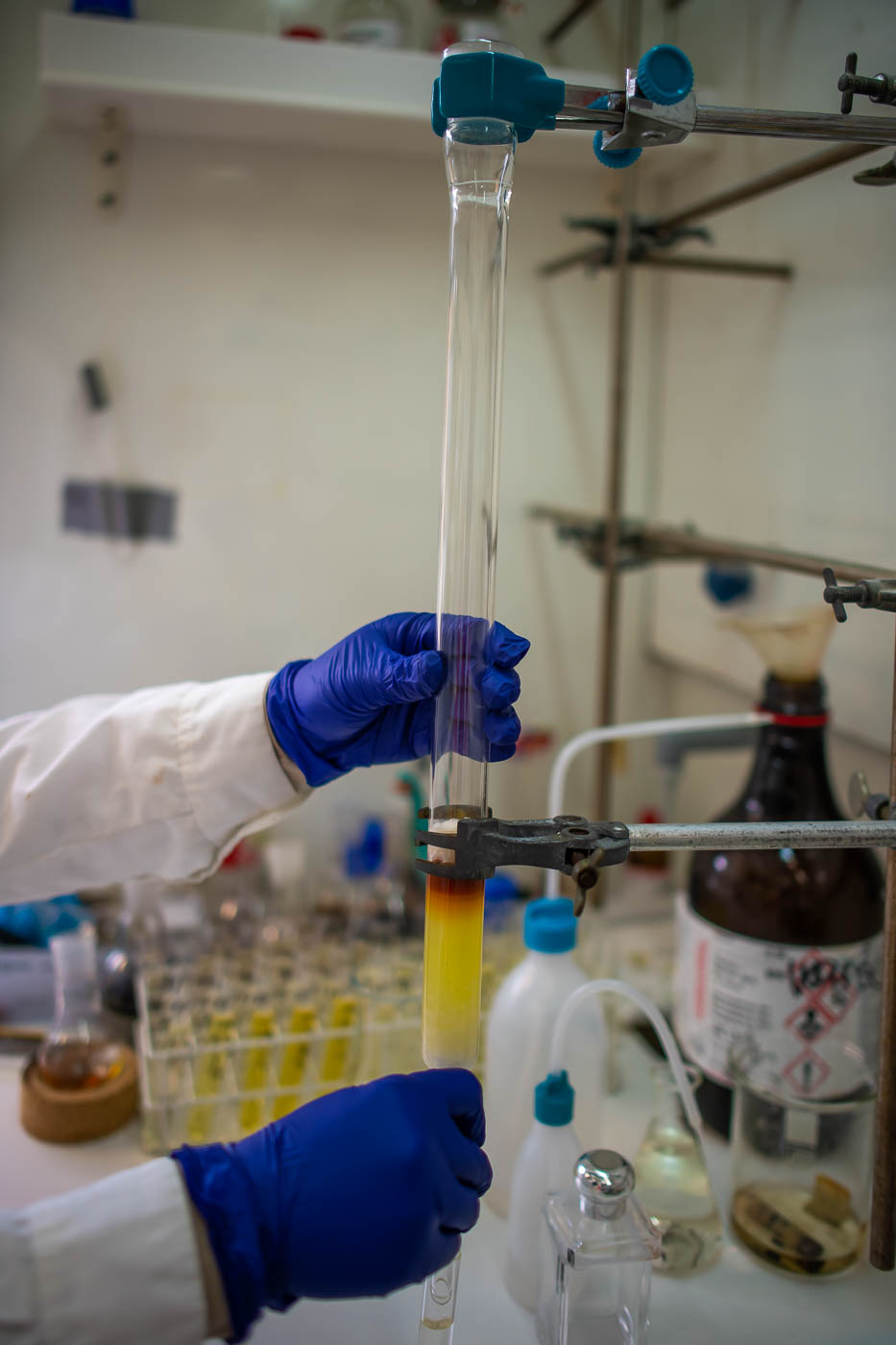
Isolation and Synthesis of Bioactive Natural Products
A 2-year MSc Programme in Greek &/or English, that trains high-level (theoretical and technological) specialists in the Chemistry of Natural Products, who will contribute to the promotion of this new, modern and rapidly developing interdisciplinary field and the corresponding technology in our country. The programme, which has no tuition fees, is offered by the UoC Department of Chemistry and the School of Medicine.
Resilience in Educational Contexts
The Erasmus Mundus Joint Master in Resilience in Educational Contexts – EMJM FLOURISH is a two-years’ full-time programme that seeks to address the need to provide a meaningful, relevant and balanced education for children growing up in adverse and marginalised circumstances, by focusing on their strengths and building their assets within protective contexts. It aims to build the capacity of educators and practitioners in creating resilience enhancing contexts which equip children and young people with the necessary resources and competencies to deal effectively with the challenges in their education and development. The EMJM Resilience in Educational Contexts is offered by the University of Malta (leading partner), the University of Crete, Greece; the University of Lisbon, Portugal, and Stefan Cel Mare University, Suceava, Romania
Cardiac rehabilitation is a multidisciplinary process for patients recovering after an acute cardiac event or with chronic cardiovascular disease that reduces mortality and morbidity and improves quality of life. It is considered a cost-effective intervention and is expressly indicated in all medical guidelines of the major societies in cardiovascular medicine. On the other hand, exercise and rehabilitation in patients with cardiovascular diseases should strike a balance between the multiple benefits of exercise and the small risk of sudden death and adverse events during strenuous effort. The aim of the program is to build an interdisciplinary training with the most current approach in rehabilitation practice and exercise guidance which has an explosive dynamic and is still underdeveloped in most areas across Europe.
The postgraduate Programme in “ Forensic Medicine, Anthropology and Imaging” aims to offer multidisciplinary training and promotion of knowledge and skills at an advanced level in different areas of Forensic Medicine, namely Forensic Anthropology, Forensic Imaging, Skeletal Pathology and Trauma, Postmortem changes, Forensic Identification. The programme also offers the opportunity of exiting with a specialisation in Forensic Anthropology or Forensic Imaging.
The School of Medicine of the University of Crete runs a Graduate Program in Neurosciences in collaboration with neuroscientists from different Universities and Research Institutes in Greece and abroad.
The Program focuses on Cellular/Molecular/Developmental, Systems, Cognitive, Translational and Clinical Neurosciences. Students are offered a strong training in neuroscience and prepared for careers in research and teaching.
The Program leads to a Master’s Degree in Neurosciences after four semesters of courses and research laboratory rotations.
TIME is an accelerated, full-time Master’s program in Business Economics (MBE). It is jointly offered by a consortium of three universities: The University of Crete, the University of Cyprus and the Wageningen University in Netherlands. It is recognized by the Greek, Cypriot and Dutch Education authorities within the framework of the Bologna Process.
The Joint Graduate Programme (JGP) in Bioethics is administrated jointly by the Department of Philosophy and Social Studies, the Department of Medicine, the Department of Biology and the Department of Sociology of the University of Crete (U.C.), Greece.
The M.A. Programme aims to provide students with the appropriate theoretical frameworks, knowledge and skills, necessary for in-depth investigation, critical analysis, evaluation, and possible resolution, of ethical problems related to biomedical research, medical practice and health care policy as well as a critical
understading of the wider implications resulting from biomedical advancements for the lives of individuals, societies and their relation to the natural environment. The Ph.D. Programme aims to offer knowledge and expertise to take graduates on to a role in Higher Education, or employment requiring high-level skills in research or advanced subject knowledge.
Public Health – Primary Health Care – Health Services
The primary aim of the postgraduate programme is to create scientists/managers with a high level of skills to improve the quality and efficiency of health services using methodologies, tools and principles from Public Health and Primary Health Care (PHC). The ultimate goal is to develop leaders who could be involved in Public Health, PHC and health services in the field of research, education and administration.
The Program covers fields of Pediatric Intensive Care and Adolescent Intensive Care, Emergency Medicine, Epidemics, Natural Disasters, and aspects of Specific Emergencies in Adults and Children. It is offered for Healthcare Professionals (Pediatricians, Anesthesiologists, Family Physicians, Nurses, Biologists, Pharmacologists).
A broad range of professors and academic multidisciplinary staff teaches the program. The aim is in-depth knowledge of the field combined with interactive presentations, workshops, skill-stations, simulations, virtual reality and an extended research in the field. The Course has been designed to be friendly to working Healthcare Professionals.
Postgraduate programme of the CENTRE of the STUDY and RESEARCH of the HISTORY of EDUCATION and the TEACHING PROFESSION (C.S.R.H.E.T.P.) organised by the Department of Primary Education, School of Education, University of Crete. The objective of the MSc is the production and dissemination of scientific knowledge in the field of Education Sciences and in the field of Critical Pedagogy and Teacher Education.
The general purpose of programme. is to contribute to the promotion of knowledge and the development of research in the scientific field of Sociology. The strategic goal is to offer sociological education and specialization to postgraduate students and to acquaint them with a critical understanding of social and cultural differences and inequalities in the changing social conditions of modern globalized reality.
It also aims to train qualified scientists who will have the ability to design and implement empirical social research using quantitative, qualitative and mixed methods. The graduates will be properly trained to work as executives of the central administration of the State, as executives in public and private organizations and companies, as research associates in research programs as well as in bodies that formulate and pursue social and development policies.
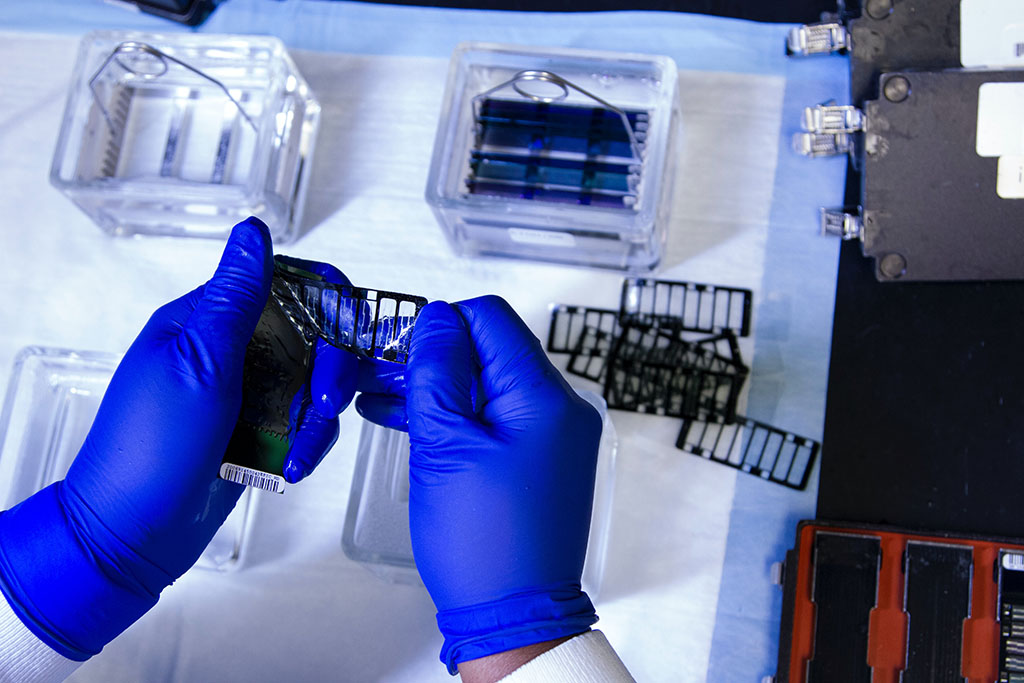
Plant Molecular Biology and Biotechnology
The aim of the MSc is to promote knowledge and research in cutting-edge areas of Plant Biology, such as Molecular Biology, Biochemistry, Applied Plant Biology, Bioenergetics, Developmental Biology, Molecular Physiology, Molecular Plant Pathology, Molecular Pharmacognosy and Molecular Ecology, as well as their Biotechnological and Environmental Applications.
Oncology: from Oncogenesis to Therapy
The aim of the programme is to train young scientists with knowledge and skills related to: Mechanisms of oncogenesis at the molecular and cellular level the modern detection approaches, detection, imaging and diagnosis of human neoplasias translational and clinical research epidemiology and cancer prevention strategies development of new drugs and newer pharmacological therapies perspectives for the application of personalized therapies per patient interventional and non-invasive oncological treatments psycho-oncology evaluation of economic parameters in the development and administration of oncological formulations evaluation of economic parameters in the development and administration of oncological formulations.
The Program intends to develop the students’ skills in matters of economic analysis and economic policy, making the best use of the Department’s human resources; it is designed to meet the needs in high-level training and research work on the part of the Department’s Teaching and Research Staff, on the one hand, and to satisfy the demand for post-graduate studies in Economic Sciences, on the other. The courses of the Program are tought in English.
The inter-disciplinary Postgraduate Program of studies based on Protein Biotechnology is organized by the departments of Biology and Chemistry at the University of Crete.
The Program leads to MCs and PhD degrees in Protein Biotechnology and receives is administrative support from the department of Biology.
The pre-requisite for this Program are accepted certificates of all the departments of Biological, Chemical, Medical and other relevant Sciences. Are also accepted graduates of Pharmaceutical, Veterinarian and Agronomical departments of Greece and external universities all over the world.
The programme aims to provide high quality postgraduate education in common topics of the Surgical Sciences, with emphasis on holistic treatment of trauma, innovative applications of Basic Sciences, the study and treatment of Surgical Diseases and research methodology. The aim of the Program is to promote knowledge and research in fundamental and modern fields of Surgical Sciences and to prepare highly trained staff for careers in the Academic Area, in high-level nursing units of the Tertiary Care of the National Health System and in Research Institutions in our country and internationally.


